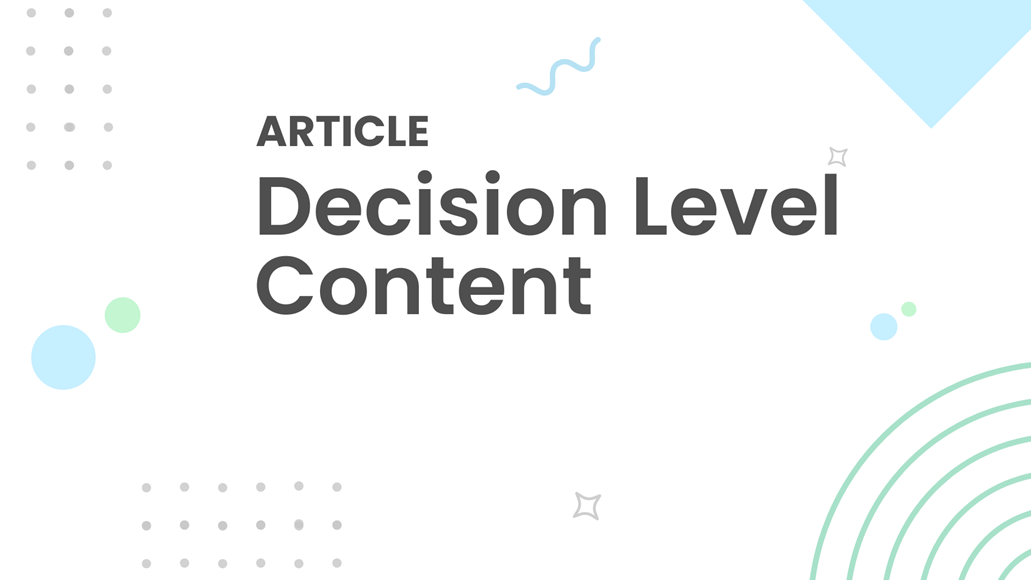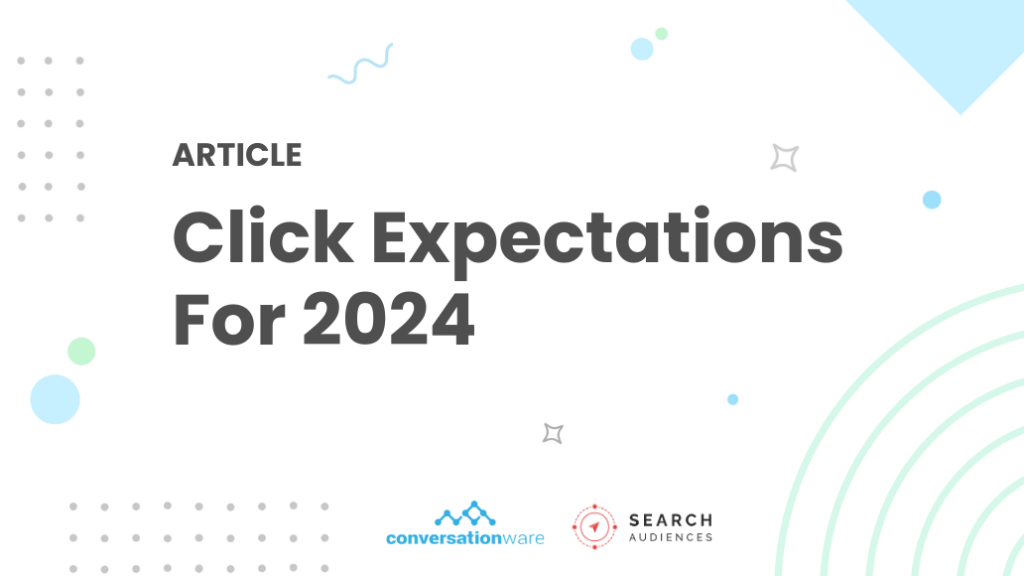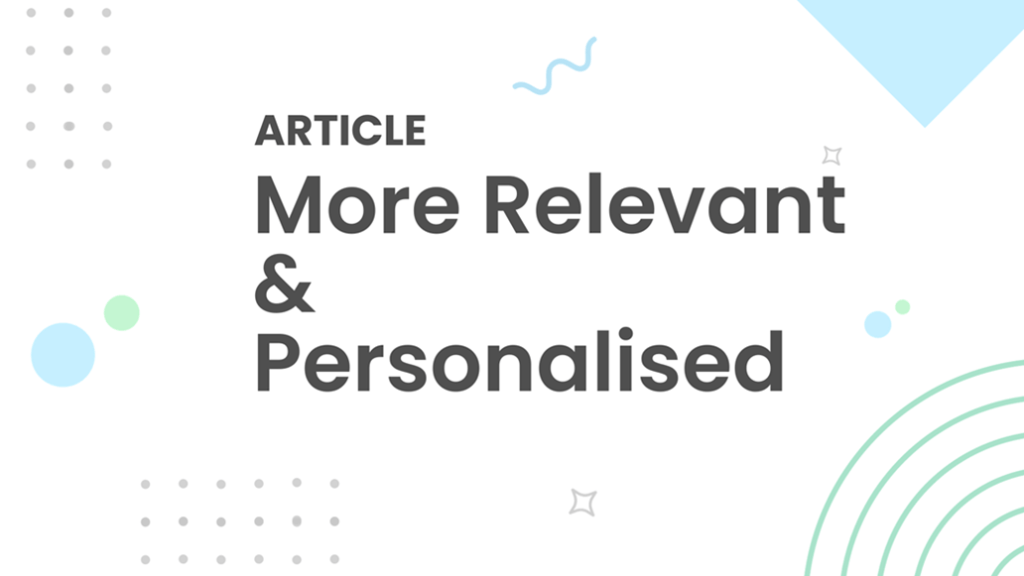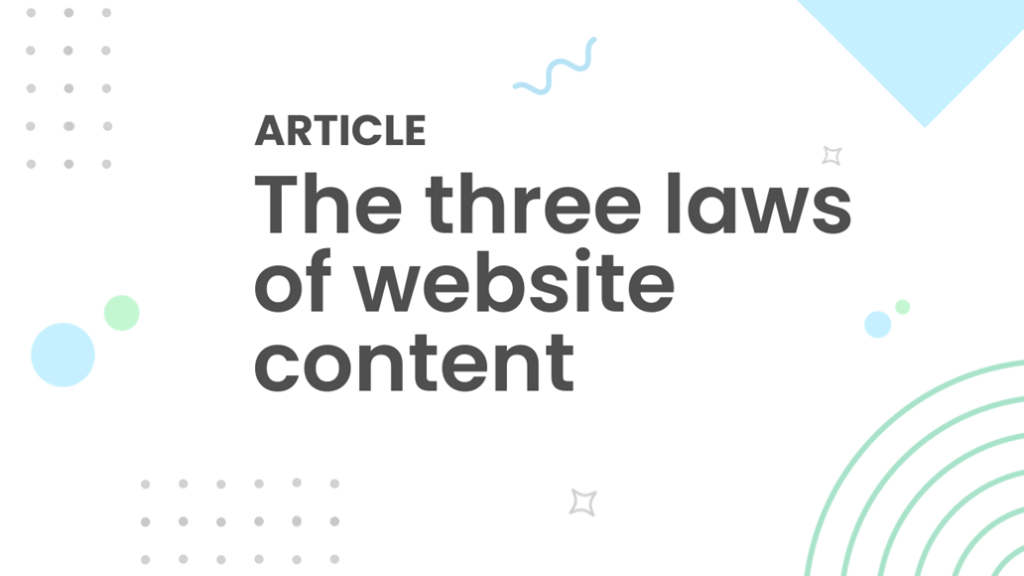
Writing for the Website
Search is the original marketing automation created by writing things on your website. The right things bring you opportunities repeatedly. It’s a nicer way to generate new business.
Write what things?
Cut to the chase with website content: commercial website visits are for decision-making. People don’t have much time to browse; they search for answers.
The first law of website content says, “Match the search with a page”, visitors get
The second law of website content says we focus on their decisions, and it goes better. To get to the point: here’s how to think about their whole journey.
How people make decisions on websites.
There is a progression in decision-making often referred to as a funnel.
It’s a human condition that follows a pattern, a timeline. And since search clicks arrive at any point on that timeline, we highlight website content for all their ‘decision-making steps’ in high definition here.
The decision timeline
In this simple example, a search timeline for a “New Kitchen.” Every step here is a different search; it deserves different content.
Imagine they are asking themselves these questions. Our advice is in green.
- What is it? Should I be interested?
- “What is a kitchen”
- If we have to define it, are they serious yet?
- Special note: this is the easiest, least valuable click to get. It’s fool’s gold.
- Should I read this?
- “Example searches given in quotation marks”
- If we match the search with a page, they are far more likely to read it, expect double the results,
- Can I be bothered to do anything
- Search “Kitchen Ideas”
- How much better will the future be if they do
- How much worse is the future if they don’t
- How do we stoke ambition?
- What will it feel like, the process, how is it done
- Search “Kitchen Design”
- It’s safe; other people do this; we got you; see it, imagine it.
- What is the scope? How do I define what is included
- Search “Kitchen Installation”
- Talk about what choices people need to make
- How can I choose between all the options out there
- Search “New Kitchens”
- Usually, the choice is between quick, cheap and perfect
- Here are all options, including ‘other suppliers’ and DIY
- Pros and cons, the trade-offs
- What budget and service levels do you offer
- Search “Cost of New Kitchens”
- Clickers include all levels of budget.
- Here are our gold, silver and bronze versions
- What do I get for my chosen product version
- Search “Best German Kitchens”
- It will be worth it. Here is our strong value proposition.
- Why should I choose to work with you?
- Search “Kitchen Company” “Kitchen Showroom”
- Credibility, quality, safety, likeable experts
Only an example, a kitchen purchase
The decisions people make are highly situation-specific. And this example is missing all the niches.
Search: New kitchen decisions
- Our kitchen is embarrassing;
- if we buy a new kitchen extension, we can invite more of the family around.
- How do you choose a new kitchen anyway?
- What colour is best, and what materials
- What’s important? What haven’t I thought of
- How can we make the most of space
- Can I justify spending the money? Will it be worth it
- What sort of choices are there between options
- Can’t I update what I have
- What look can I afford
- How long will it last? Is it durable
- Are you local?
- Shall we book in at the showroom,
- Will they try and sell to me
- Have these people got a reputation to lose
This may not be a perfect representation. But it illustrates what might be in people’s heads when deciding whether to start a conversation. Not everything is in every head, but now, due to Google beer watering, we serve an audience across the whole timeline.
The thinking around decision-making is the point. Unless you are discussing the decisions being made, we are further away from generating more conversations.
Conversion factors
Salespeople will be the best source of questions to answer with this type of decision-level content.
Niches
This piece will get too long, but the overlay to this content journey is in the niche audiences you serve.
The more specific the niche audience pages you create, the more people will get past that last question, “why should they deal with you?”. It’s normally about them.
Inspiration
There is inertia to change. Create energy by showing the difference between a fabulous future and not wanting to stay with the status quo. Points for enthusiasm, for selling the idea of doing something before they then choose what to do.
Motivation
Moving away from the status quo could involve negativity. We should be careful. Negativity sometimes prevents progress, affecting confidence in the ability to change. But when used in contrast, it can create energy.
Risk reduction
Understanding the reasons people do nothing is where the experts shine. The potential for embarrassment is one of those reasons; it’s the risk of feeling stupid for making the wrong choice. That’s why choice and comparison are important.
In some cases, it can involve the risk to careers. The risk of making the wrong decision looms large closer to taking action.
Choice reduces risk
Visitors represent the spectrum of price/quality: the broader the range, the more the content works. Having a choice is an underrated conversion factor.
Not serving the range means wasted clicks and fewer returns. But also, if there is only one choice, it might feel the risk is too great to start a conversation. They’ll compare other websites instead of options.
Personality
Who am I dealing with, what do they look like, and will it be fun working with them? Can I get valuable knowledge without paying for it. Do they share?
Reducing the unknown reduces risk.
For higher-value products and services
People are in the market for a lot longer than we might want for lumpy, big sales tickets.
The higher the risk, the more the trust requirement, the more confident people need to feel about their decision. Doubt and indecision are the real reason opportunities don’t progress.
It is your expertise and relaxed nature that helps them feel comfortable. You know what? Experts are often found talking about their stuff; you can’t stop them. It breeds confidence.
Regular Content
The most successful lead-generating and growth projects have all produced regular content. It’s just how it has been.
It’s a quantity game at its heart. Make enough calls, and you will get lucky. Same for content. The difference is that lucky content ‘calls’ can work repeatedly for years to come.
But it’s not just any content. Experts understand the reasons people don’t take action. It is that indecision is final. Covering these indecisions is where the luck is.







